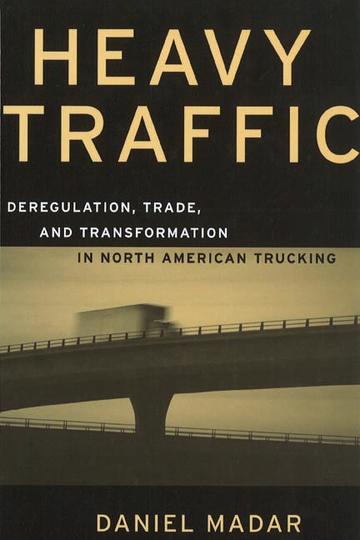About BC Books Online
BC Books Online was created for anyone interested in BC-published books, and with librarians especially in mind. We'd like to make it easy for library staff to learn about books from BC publishers - both new releases and backlist titles - so you can inform your patrons and keep your collections up to date.
Our site features print books and ebooks - both new releases and backlist titles - all of which are available to order through regular trade channels. Browse our subject categories to find books of interest or create and export lists by category to cross-reference with your library's current collection.
A quick tip: When reviewing the "Browse by Category" listings, please note that these are based on standardized BISAC Subject Codes supplied by the books' publishers. You will find additional selections, grouped by theme or region, in our "BC Reading Lists."
Canada and the United States exchange the world’s highest level of bilateral trade, valued at $1.4 billion a day. Two-thirds of this trade travels on trucks. Heavy Traffic examines the way in which the regulatory reform of American and Canadian trucking, coupled with free trade, has internationalized this vital industry.
Before deregulation, restrictive entry rules had fostered two separate national highway transportation markets, and most international traffic had to be exchanged at the border. When the United States deregulated first, the imbalance between its opened market and Canada’s still-restricted one produced a surprisingly difficult bilateral dispute. American deregulation was motivated by domestic incentives, but the subsequent Canadian deregulation blended domestic incentives with transborder rate comparisons and concerns about trade competitiveness.
Daniel Madar shows that deregulation created a de facto regime of free trade in trucking services. Removing regulatory barriers has enabled Canadian and American carriers to follow the expansion of transborder traffic that began with the Canada–US Free Trade Agreement and continues with NAFTA. The services available with deregulated trucking have also supported sweeping changes in industrial logistics. As transborder traffic has surged, the two countries’ carriers – from billion-dollar corporations to family firms – have exploited the latitude provided by deregulation.
This book is a valuable contribution to our understanding of the policy processes and economic conditions that led to trucking deregulation. As a study in public policy formation and the international effects of reform, it will be of interest to students and scholars of political economy, international relations, and transportation.
Daniel Madar is an associate professor in the Department of Political Science at Brock University, Canada.
- Short-listed, Donner Prize, Donner Foundation
Professor Madar provides a strong, well-crafted and insightful account of the process by which the highly regulated trucking industry was deregulated after 1980 in the U.S. and Canada, and how, in conjunction with free trade and industrial changes, the trucking business has been transformed.



